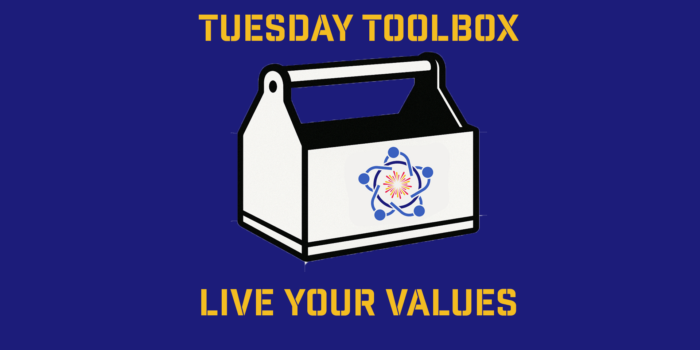Are you investing the time and resources to grow personally and professionally?
Jerry Seinfeld shares how to succeed with process and live life your way.
Clearly, Jerry Seinfeld knows how to do the work. His standup career spans nearly 50 years. Seinfeld has generated billions in total syndication revenue; to date, Jerry’s slice (if you can call it a “slice”) is somewhere north of $800 million. Yet money is just one barometer of success: He famously turned down a $100 million offer to do the show for one more year because he felt the show had run its course.
As Seinfeld says, success lies in the work itself. “That’s it for me: solitude and precision, refining a tiny thing for the sake of it.”
Successful people, in whatever way you choose to define success, are successful because they do things differently than other people. They think, and believe, and operate differently than most other people — and in the process achieve differently than most other people.
Three examples:
Process
In an interview with Scott Feinberg for the Hollywood Reporter’s Awards Chatter podcast, Seinfeld describes his keys to success. Which, not coincidentally, are the three keys to entrepreneurial success, and success in any field.
To Seinfeld, success is based on “work and thought and preparation,” and the following three elements:
1. Inspiration. You have an idea. You come up with something new, something original, or even just a different take or perspective on a product or service.
“That’s the easiest step,” Seinfeld says. “You get ideas. They just come to you. You can’t create them … you just wake up and your inbox has something in there and you go, ‘Oh, look at that.'”
Of course, an idea without action isn’t really an idea; it’s just a dream.
2. Execution. “Execution is pretty obvious,” he says. “You have the idea, now you execute the idea. Is this what you wanted to do? Is this a good version of what that idea was?”
According to Seinfeld, this is where most people stop.
“They have a good idea, they execute the idea, and then they cross their fingers,” he says. “And they really hope that it works, and they have lots of excuses ready for when it doesn’t.”
3. Detail. “The third piece of success in a creative field is detail,” he explains. “Obsessive detail.” To Seinfeld, detail is as important as inspiration and execution; think three equal-size pieces of the success puzzle.
“This happens to every comedian every night,” he says. “I have bits, I have jokes, they work, they never miss, it’s a good joke, people like it, every time I say it in this way it always works … but if I just have a slight catch in my throat the middle of one word, just that little thing in the first syllable, it’s gone. It’s gone. The audience is like, ‘What happened? Did he get nervous? Or distracted? Something went wrong.’
“In comedy, jokes are extremely fragile things because they have to be exactly right to work.”
That’s also true in business. Execution is important, but obsessive attention to detail — making sure you get it right, every time, for every customer — is critical. Comedians can’t afford for an otherwise surefire joke to fail, just like businesses can’t afford for otherwise reliable processes or products to fail.
Detail is everything.
And that’s even true in a business where creativity is not just appreciated but required.
“If you were a guest star on my show and you came on for a week,” Seinfeld says, “if you missed a word — one word — in the lines that we’ve written for you, you’re going to get a look from me … because that’s the way we executed the series.”
You’re only as good as today, right now, this time, and that’s why detail matters just as much as ideas and execution.
More Process
Comedians need material — lots and lots of material. They can’t perform the same act year after year. They constantly need new jokes, new insights, new stories. While the performance is the end product, comedians who can’t consistently write have nothing to perform. Writing is the foundation.
Early on, before he even had five good minutes of material, Seinfeld realized the way to become a better comedian was to write better jokes. And the only way to write better jokes was to write every day.
Wait for inspiration? No. Wait for lightning to strike? No. He needed to write, each and every day. (Sounds simple, but that’s the surest path to excellence.)
So he got a large wall calendar, hung it in a place he couldn’t miss, and every day, once he had written at least one new joke, he put a red X over the date.
As Seinfeld told Brad Isaac:
After a few days, you’ll have a chain. Just keep at it and the chain will grow longer every day. You’ll like seeing that chain, especially when you get a few weeks under your belt.
Your only job is to not break the chain.
Pick a goal. Decide what one thing — what one, fundamental thing — will make the biggest difference in achieving that goal if you do it every day, and then commit to checking off the boxes on your calendar.
Within a few days, you’ll start to embrace your small successes. Within a few weeks, you won’t be able to imagine doing things differently.
One day you’ll look up and realize that you’re a lot closer to where you someday hope to be than you ever imagined possible — because success comes from doing the right things, day after day after day.
Mindset
Here’s a story from the documentary Jerry Seinfeld: Comedian. Standup comic Orny Adams wonders if he is wasting his time following his standup dreams.
“It’s like you get to the point where, ‘How much longer can I take it?'” Adams says. “I see my friends making a lot of money … they’re moving up … ”
“‘They’re moving up?'” Seinfeld says. “This (standup comedy) has nothing to do with your friends,” Seinfeld says, waving his hands dismissively.
“Yeah, but what do you tell your parents?” Adams asks.
“This is a special thing,” Seinfeld says. “This has nothing to do with ‘making it.'”
“OK,” Adams says. “But did you ever stop and compare your life and go, ‘I’m 29, my friends are all married and have kids, they all have houses, they all have some sort of sense of normality … ‘
“Ick,” Seinfeld says, and pauses for a moment. “Let me tell you a story,” he continues. “This is my favorite story about show business.”
Glenn Miller’s orchestra is doing a gig somewhere. They can’t land the plane because it’s winter, a snowy night … they have to land in this field and walk to the gig. They’re dressed in their suits, they’re ready to play, they’re carrying their instruments.
So they’re walking through the snow, it’s wet and slushy, and in the distance they see this little house. There are lights on inside, there’s a curl of smoke coming out of the chimney, and they go up to the house and look in the window.
Inside they see this family. There’s a guy and his wife, she’s beautiful, there are two kids, and they’re all sitting around the table, they’re smiling, they’re laughing, there’s a fire in the fireplace …
These guys are standing there in their suits. They’re wet and shivering, holding their instruments, and they’re watching this incredible Norman Rockwell scene.
And one guy turns to another guy and goes, “How do people live like that?”
That’s what this is about.
Of course, everyone’s definition of success is different. For many, a home and a family are near the top of the list. But for others, they’re not. Maybe just not now. Or maybe not ever. And that’s OK.
Much of the time you should at least consider what other people think, but not when it stands in the way of living the life you really want to live.
For example, if you really want to start a business (which you can do in just a few hours) but you’re worried that people might say you’re crazy, do it anyway. If you want to embrace a different formula for work-life balance than most other people, do it anyway. If you want to accomplish something silly like doing 100,000 pushups in one year, go for it.
Pick one thing you haven’t tried because you’re concerned about what other people might think or say, and go do it.
It’s your life. Live it your way.



